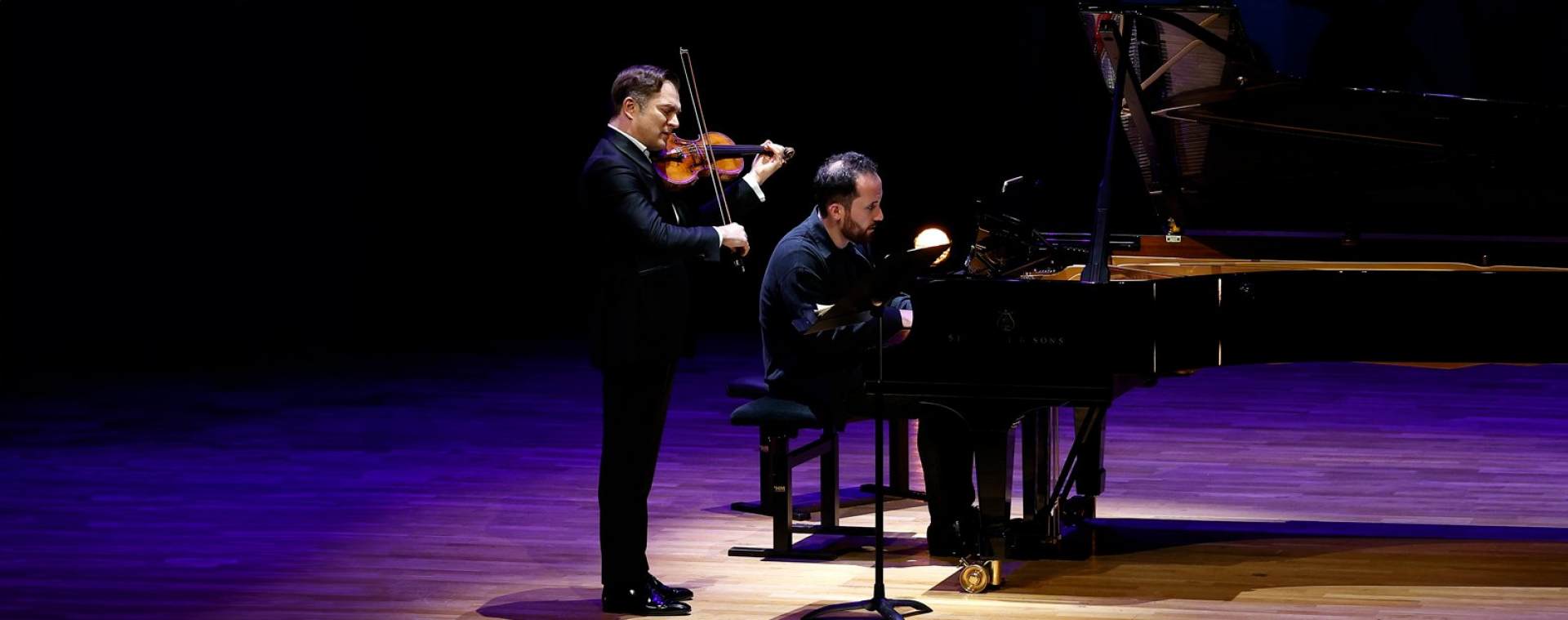Renaud Capuçon and Igor Levit
Mo | Tu | We | Th | Fr | Sa | Su |
An eagerly awaited encounter between the famous French violinist and the demanding pianist, both with consistently ambitious programs. They take on the challenge of Brahms' three Sonatas for violin and piano: a concentrate of poetry, brilliance, and heroism.
In terms of violin writing, Johannes Brahms owes much to the great virtuoso Joseph Joachim—creator of the Violin Concerto—who provided the composer, a trained pianist, with numerous technical insights. Although his three Sonatas for violin and piano form an admirable set, each possesses its own distinct personality. The first, known as the "Regensonate" ("Rain Sonata") from 1879, distills an inimitable sense of melancholy. The following two, composed in 1886 and 1888 respectively, were written in the idyllic setting of Lake Thun in Switzerland. While a tone of luminous tranquility seems to emanate from the second, the last one, particularly rich, unfolds a striking brilliance and expressive variety.
Program and cast
Duration: Approximately 1 hour and 45 minutes, including 1 intermission
Renaud Capuçon, violin
Igor Levit, piano
Programme
Johannes Brahms
Violin Sonata No. 1, Op. 78
Violin Sonata No. 2, Op. 100
Intermission
Violin Sonata No. 3, Op. 108
Philharmonie de Paris
Grande salle Pierre Boulez - Philharmonie
The Grande salle Pierre Boulez (Symphonic Hall) boasts innovations in architecture, stage design and acoustical engineering. Thanks to a modular design, its capacity increases from 2400 people in the symphonic configuration to 3600 when the parterre is converted into a standing room area.
All five levels of the Grande salle Pierre Boulez are accessed via the entrance on Level 3 of Philharmonie, which can be reached via stairways, escalators and two lifts, with direct access from the Porte de Pantin plaza and the Philharmonie parking facility.
From the entrance, stairways and lifts inside the hall take visitors to the various levels.
The Grande Salle Pierre Boulez has thirty designated seats for people with reduced mobility.

 EN
EN DE
DE IT
IT FR
FR ES
ES RU
RU JP
JP RO
RO
 Seating plan
Seating plan 